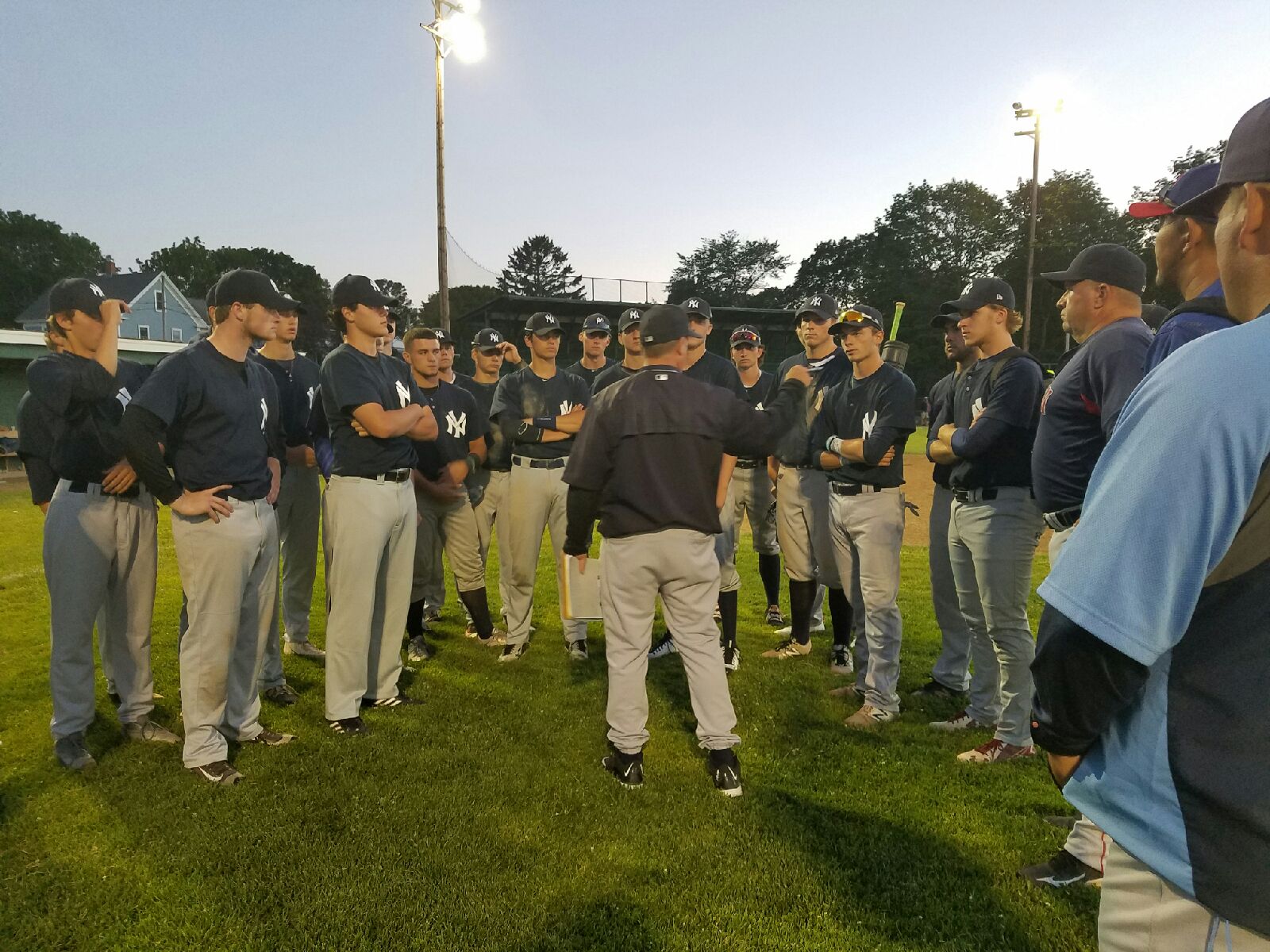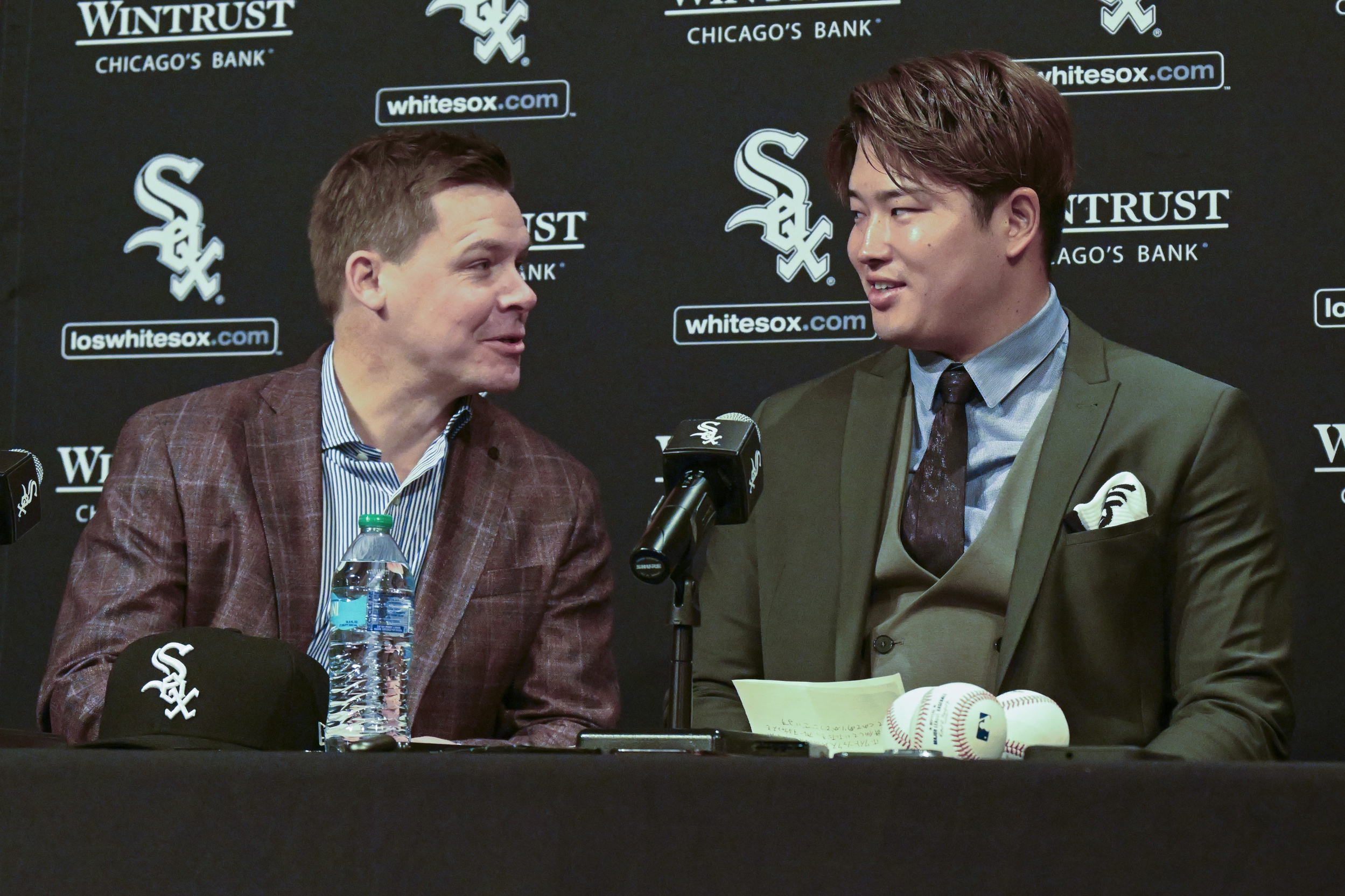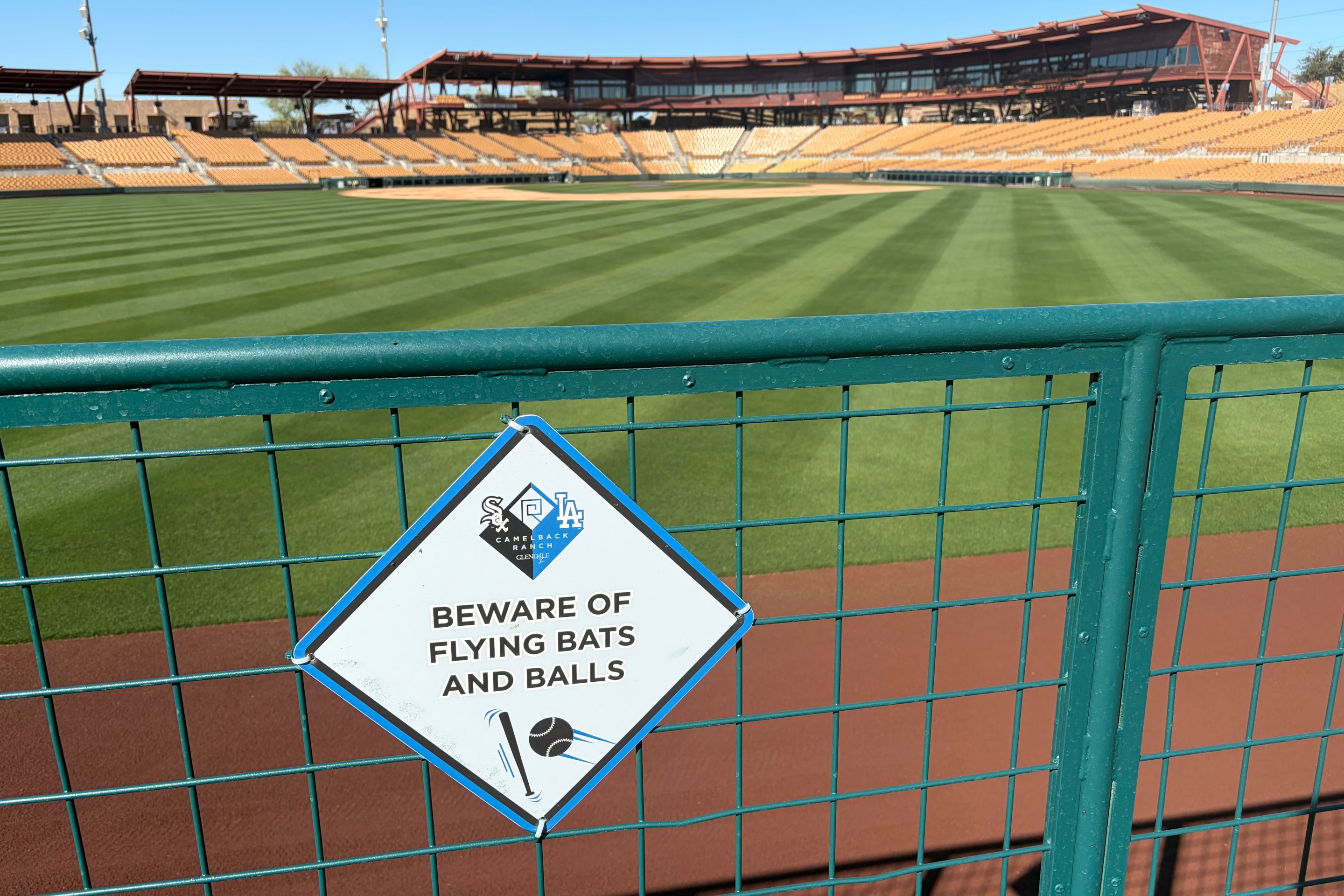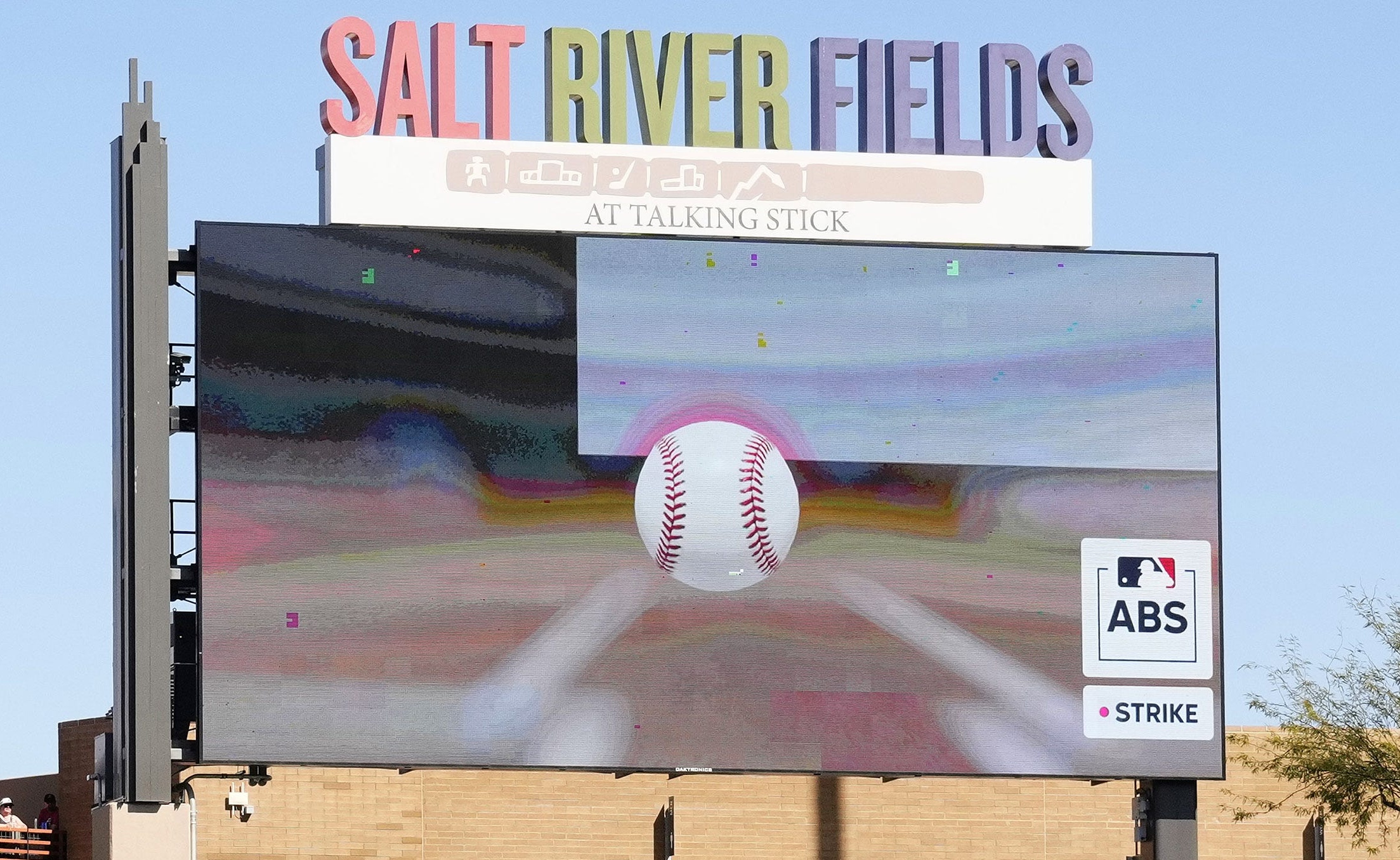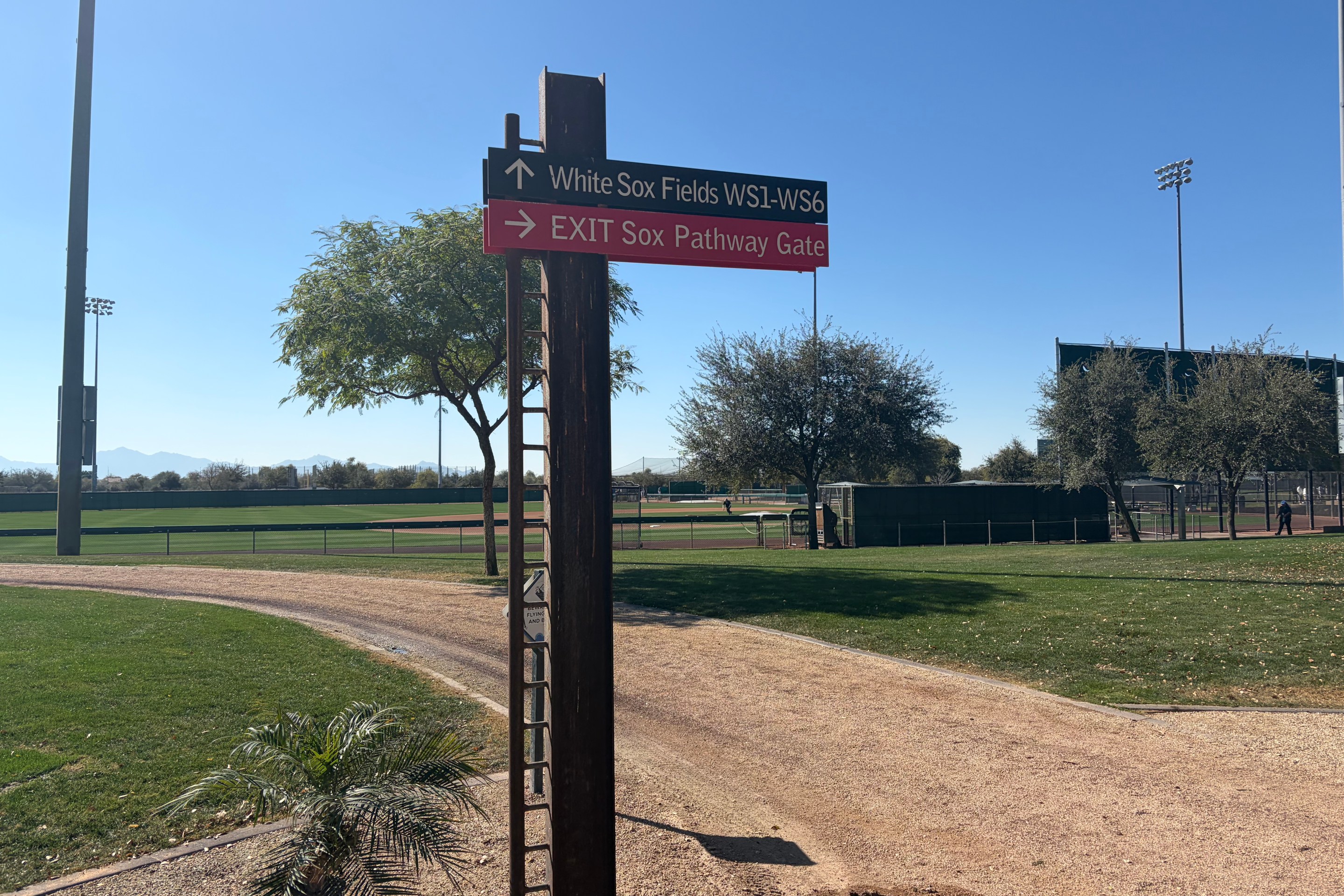Eight years later, and the consensus is that Mike Vasil is selling himself short.
"Mike was the truth," said Shane Smith. "Mike was gross. He is gross. He was gross, he is gross. All of the above."
"I think we were more in awe of the other guys who were there who were draft prospects," said Vasil. "I was probably like 92-95 mph, I think I might have hit 96 mph for the first time on that trip."
"Nah, he was like 94-96 mph and he was painting shit," said Sean Burke. "Mike was the highest-ranked prospect."
"[Vasil] pitched five innings, which is like unprecedented. No one at these events usually throws more than three innings. The fact that he did made the game feel like a game," said Matt Hyde.
Hyde has been a Yankees scout for the past 20 years. For most of that time, he's been tasked with compiling and coaching the best rising high school seniors in the Northeast region of the country for the Area Code Games; a six-day showcase in Long Beach, California attended by all 30 MLB teams. The event distinguishes itself by not charging players an entry fee to try out, and the rare sight of inter-team cooperation to get the best professional talent from across the country in front of the entire industry.
"It's a labor of love," Hyde said. "It's finding prospects before they're prospects."
Despite the Northeast carrying the reputation of not being a talent hotbed, held back by cold weather that doesn't allow high schoolers to play as often as kids from warmer climates, Hyde said Yankees Area Codes team has produced 115 major leaguers in his time, including current Yankees Anthony Volpe and Marcus Stroman. There might be a separate story to be written about the catching crop on the 2017 squad, since having Henry Davis, Logan O'Hoppe and Bo Naylor all on the same team presented some playing time complications. But the current fascinating oddity is that the heart of his pitching staff from that year -- Smith, Burke and Vasil -- are now all in the same major league clubhouse, all beginning their first full big league season together.
"It's pretty, pretty crazy," Vasil said. "I remember back then thinking, 'Damn, I loved riding with those guys.'"
⚙️⚙️⚙️
Scouts often discuss the issue of "cold-weather kids," high school prospects who live in parts of the country where the weather keeps them from playing baseball all year-round. As a result, amateur players in places like California, Texas and Florida wind up developing faster, and a trio of high school pitchers from the Boston area -- perhaps already culturally predisposed to defiance -- can wind up feeling overlooked, especially when entering a national showcase tournament against teams representing other parts of the country.
"We probably thought of ourselves as a little more gritty," Vasil said.
"Everybody thinks it's the worst region for baseball in the country," said Burke. "We definitely had a chip on our shoulder going into it."
"You're included among the best group of players in the country, so you're playing the other guys who are the best players in the country, so I think that's the biggest thing is that it's getting to play really good competition," Smith said.
But all of the different branches of scouting are mostly separated by how much projection is required between players' present and their future. For someone like Hyde, not only does he look at cold-weather players as simply requiring a longer wait, but it offers a reprieve from the year-round single-sport training that so many in baseball often lament. Vasil and Burke both were basketball stars who played two sports, while Smith played three. And when trying to project a player literally eight years into the future, it might be a glance at traits just as relevant as their pitch mix in 2017.
"As a scout, it helps us when we can go and watch these players compete in another sport," Hyde said. "We get to see how they move. We get to see how they come up big in big moments. We get to see how they do something that might be outside of their comfort zone."
And at the Area Codes, scouts got to see how this trio of hard-throwing teenage righties fared against players who were more used to seeing their caliber of stuff than fellow Massachusetts high schoolers.
"I think we did pretty well," Burke said, with the intimation that holding their own and splitting their games qualified as such. Hyde recalls managing a lot of close games, a pair of walk-off wins, and feeling like his team more than belonged.
"They had a good camaraderie; they came together as a team and not as a bunch of individuals showcasing themselves," Hyde said. "For all three of those guys, they were very good pitchers. They were strike-throwers. They got after it. They weren't afraid of players making contact against them. They weren't just out there trying to see how hard they threw. But all three of them actually pitched. That really stood out to me. It's interesting that all three of them have faced adversity in their careers and they've been able to persevere. They've never given up, and I think it goes back to that first impression when they were in high school. They didn't shy away from being in the spotlight or having to face a high level of competition."
"We're all 17 years old staying in a hotel in Southern California, playing baseball in front of hundreds of scouts, so for all of us then it felt like we were in the show," Vasil said.
⚙️⚙️⚙️
Burke actually tried out for the Area Codes a year early, figuring correctly that the exposure couldn't hurt, and felt the scholarship offer he got from Maryland was in response to his showing. Vasil look destined to be drafted out of high school until an injury in his senior year led to him attending Virginia. The pair stayed in contact throughout their college years and remained good friends. As for Smith and Vasil, their friendship ramped up with the former's emergence as a Brewers prospect after an injury-racked tenure at Wake Forest led to him going undrafted.
There are only so many offseason training facilities in the Northeast, after all.
"This was our second year working out together," Vasil said of Smith. "Now I'm going to see him everyday."
They spend enough time together that, in last December's Rule 5 Draft in which they were both selected, Vasil was more locked in on Smith's eventual first-overall selection than the man himself.
"I knew way more about the Rule 5 than he did, which I love about him," Vasil said. "He was just working, working his butt off. And then he came in a couple days before and was like, 'I think I'm Rule 5 [eligible],' and I was like, 'Yeah, I know. You are.'"
"Maybe two or three days before [the Rule 5 draft], someone reached out and said 'so and so is asking questions' and I said OK, people with teams ask questions all the time," Smith said on the buzz he heard about getting picked. "Mike actually sent me the tweet probably a couple hours before saying I was going to get picked first, and I was like, 'Mike, why are you messing with me? Stop. Don't jinx me. Don't put a hex on all the good things that could happen.'"
With that, and Smith pitching so well out of the rotation in spring that the White Sox were willing to take another Rule 5 pick in Vasil, with plans of ramping up his changeup use out of the bullpen, all three are essentially starting their first full big league season on the same rebuilding team at age 25. Not an early start by any means, but with a chance to spend a good chunk or even the bulk of their major league careers together.
"What are the odds of all this happening? Crazy. Insane," Vasil said.
Injuries have stalled the process, but it's consistent with their cold-weather origins. The journey was a little slower than most of the counterparts, but given time and opportunity, they might wind up proving to everyone that they're just as good.
"I think there's something to that," Hyde said. "Players that stick with it, and may develop a little bit later than others who were famous sooner."
